Does It Even Matter What Kind of King Charles III Will Be?
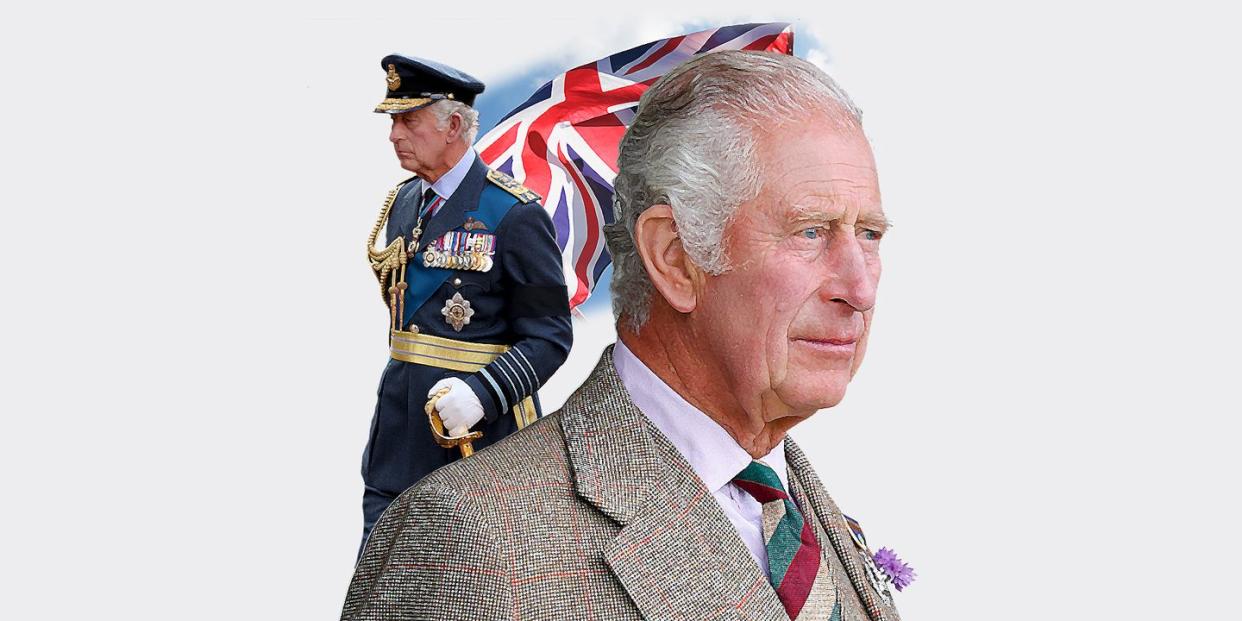
"Hearst Magazines and Yahoo may earn commission or revenue on some items through the links below."
It’s our first view of King Charles III. Just after 2 in the afternoon on Friday September 9 in the shadow of Buckingham Palace, he is slightly hunched over in a fitted dark suit, black tie, and pocket square, his hair wispy and white, balding in the back. His familiar face etched with age. He makes his way to the crowd hanging over the barricade keeping them at a distance, and he begins shaking hands with the front row.
He looks ever so slightly uncomfortable as he starts down the line, glancing back at the bodyguards walking along with him. His expression seems to say, “How much longer?” but he keeps going, shaking every hand. It only takes a minute or so for his smile to warm. He makes eye contact with each person as he moves closer to the palace. A woman in a beige blouse holds his hand a bit too long then pulls him in for a kiss on the cheek. He doesn’t miss a beat, nodding his head kindly at the woman, and continuing on to the next. The crowd breaks out in “God Save the King,” the new national anthem, which was just 24 hours ago, “God Save the Queen.”
Charles is 73 years old and stepping into a new job he’s been preparing for his entire life; he is the monarch who has waited the longest for this moment. His mother, Queen Elizabeth, was 96 years old when she died on September 8, after taking her position as head of state seven decades prior. The whole world has changed since then.
Charles becomes king at a particularly tumultuous time, as well: Brexit is fresh, there’s a brand-new prime minister, the latest in a recent churn of PMs, and the war in Ukraine is causing ripple effects throughout the world. There are the sexual assault allegations against his younger brother, Prince Andrew, who settled with his accuser earlier this year, and the ongoing reckoning with the monarchy’s violent colonial past and legacy of oppression.
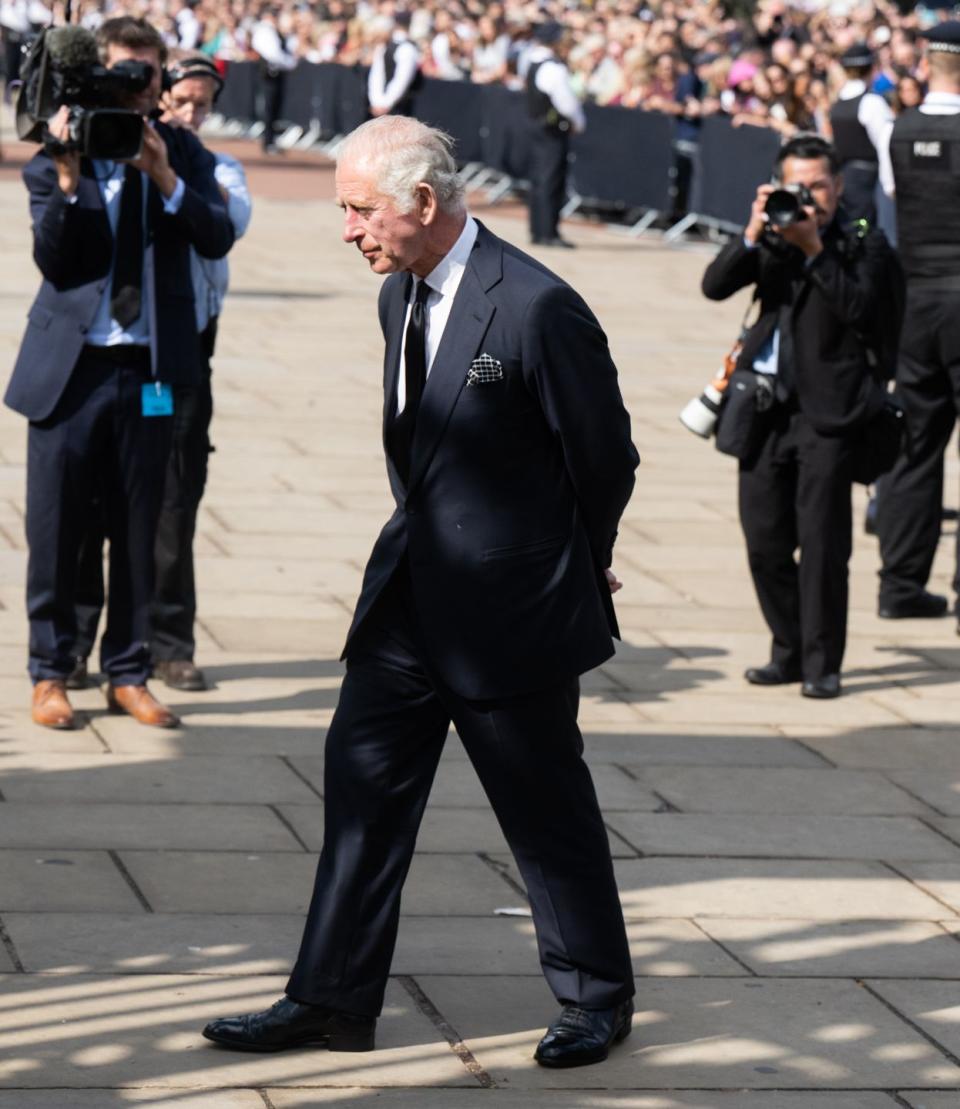
For the next few weeks, Queen Elizabeth will continue to be celebrated and mourned. Then, all of the attention will turn to her first-born son. There are big questions that have been asked for a long time that are now coming into sharper focus: what kind of king will he be? Can he command the respect his mother did? Can he keep his opinions to himself—like his mother who never complained and never explained? And can he handle the pressure of it all? Most of all, can he keep at bay the biggest question of all: is the monarchy still necessary in our modern society?
“When his mother became queen, she was a mysterious princess. We’ve known Charles his whole life. But, even with that 70-year wait, is he ready to replace his beloved mother?” asks royal biographer Duncan Larcombe. “We are in a totally uncharted territory. We wait with bated breath.”
After the new king finishes greeting the people lined up in front of the palace, he and his wife take a moment to admire the rows of flowers and notes piling up, then he makes his way inside to meet new Prime Minister, Liz Truss. The BBC points out that video footage of the head of state meeting with the PM is rare; each interaction of the new king is analyzed and compared to his mother. We hear an emotional Charles say candidly to Truss, “It’s a moment I’ve been dreading as I know a lot of people have.
“But we’ll try and keep everything going.”
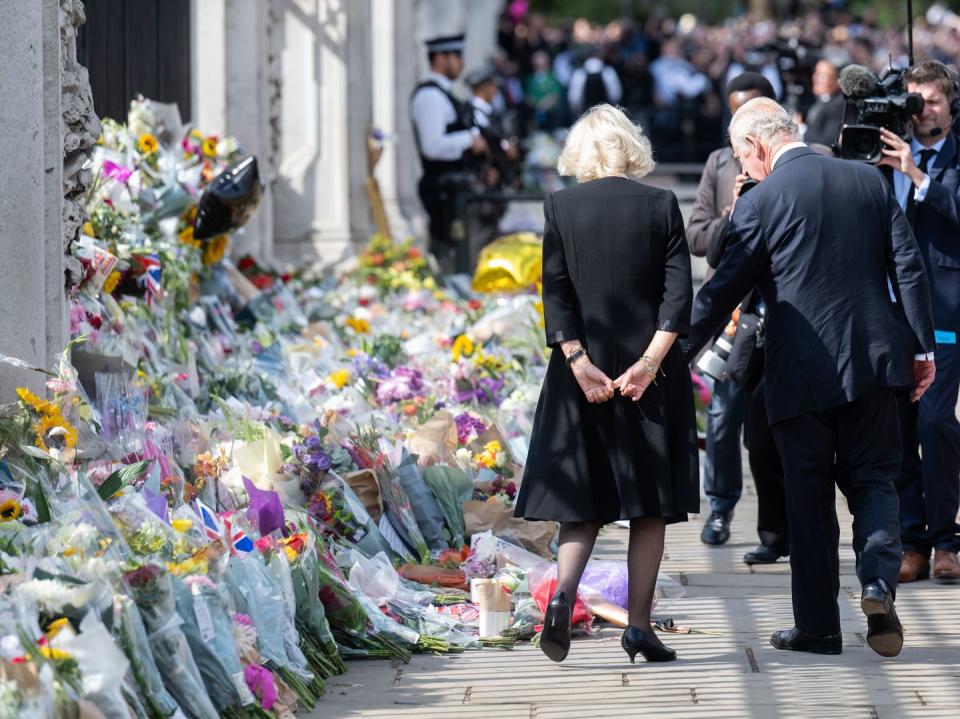
It’s only been a few days, but so far, the halo of the queen’s popularity has extended to King Charles. His welcome has been mostly warm. Not too long ago, it would have been hard to imagine such a pleasant reception. Charles’s extended period in waiting has meant the public has seen his long, messy path here—everything from his dating life to his first marriage to a young Princess Diana and their explosive divorce to the tapped private phone calls with his mistress turned second wife, Camilla, now the queen consort. Seeing Charles and Camilla today brings back to mind Diana’s famous quote, "There were three of us in this marriage, so it was a bit crowded." After Charles and Diana’s split, Charles’s popularity plummeted. The percentage of people who thought he’d make a good king dropped from 82 percent to 41 percent from 1991 to 1996, according to a poll cited in the New York Times.
And it’s not just his love life. The queen dutifully refrained from expressing any political or even personal opinions, in keeping with the tradition of the role. But Charles has had a whole successful career as a philanthropist—which has opened him up to controversy and criticism. And we know Charles’s views, too. In 2015, a cache of letters and memos Charles sent government ministers in 2004 and 2005, including then-PM Tony Blair, was made public after The Guardian fought in the courts to have them released. The so-called “Black Spider Memos,” named for Charles’s scrawling handwriting in black ink, showed that the then-prince had sent dozens of letters petitioning on issues on everything from the war in Iraq to alternative herbal medicines.
Those letters were never meant to be public—and the Queen presumably shared her views privately in the traditional weekly meetings with the 15 prime ministers who had the job during her reign. But Charles has also given interviews, he’s written opinion pieces (just this year, he wrote one for Newsweek on climate change and the urgency of a global effort to reduce emissions) and books, like his 2012 Harmony: A New Way of Looking at Our World, about sustainability and the environment. We’ve heard more from Charles in his extended role as heir than we ever did from his mother.
He swears that’ll all change, though.
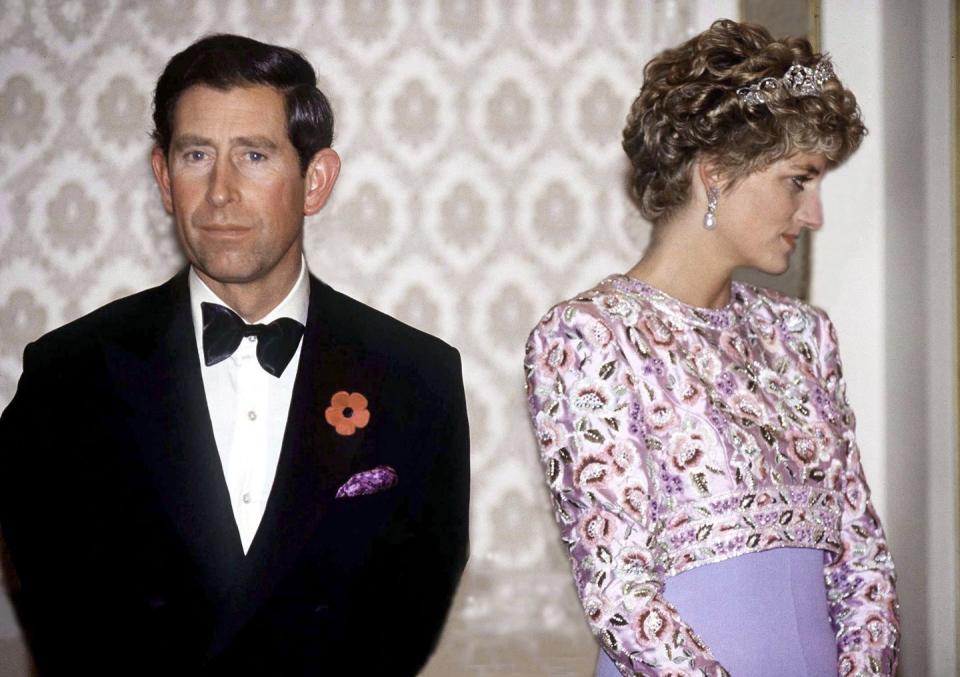
“The idea, somehow, that I’m going to go on in exactly the same way, if I have to succeed, is complete nonsense because the two—the two situations—are completely different,” he said in a 2018 interview with the BBC. When he was asked if he’d continue to campaign for issues, he answered: “No … I’m not that stupid.”
But when it comes to the issues he’s passionate about it’s hard to imagine he’ll stay quiet. He told a Vanity Fair interviewer that same year that climate change and other crises “keep me awake at night.” And he’s spent his life so far running successful charities championing causes he cares about.
Charles’s friend and biographer Jonathan Dimbleby wrote in The Guardian in 2013, “As he has said to me more than once, not self-righteously but as though sharing a burden, ‘I simply can't see what I see and do nothing about it. I could not live with myself.’”
Dimbleby went on, “Though there has been no carefully incubated plot to subvert the present order—he is sensitive to constitutional propriety and he reveres his mother's long stewardship of the crown—he has almost by default redefined in advance the role that he will play when he succeeds.
“And this means that a quiet constitutional revolution is afoot.”
One of the earliest hints that Charles might do things differently than his mother came in 1994. He said that when he became king, he wanted to be a defender of faiths, not Defender of the Faith, a title the British monarch has held since Henry VIII was given it by the Pope in 1521. It was a controversial thing for the future Supreme Governor of the Church of England—the singular faith of which the Defender of the Faith title refers—to say.
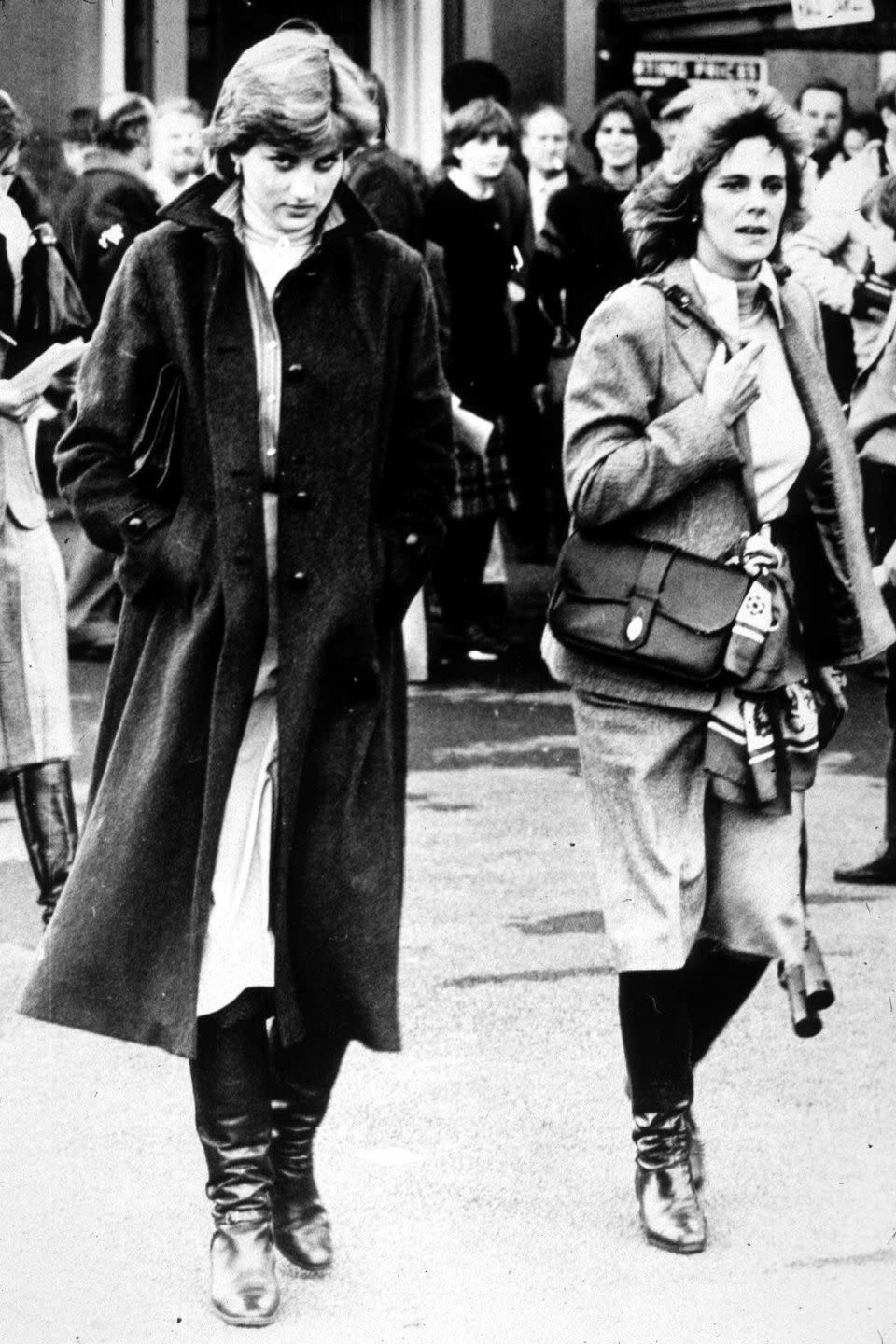
Charles clarified his position in a 2015 BBC interview saying, “I said I would rather be seen as ‘Defender of Faith’ all those years ago, because, as I tried to describe, I mind about the inclusion of other people’s faiths and their freedom to worship in this country. And it’s always seemed to me that, while at the same time being Defender of The Faith, you can also be protector of faiths.”
In his first speech as king, also on September 9, Charles spoke of his “deeply rooted” Christian faith, quelling fears he’ll stray too far from tradition. But he also acknowledged that, “In the course of the last 70 years we have seen our society become one of many cultures and many faiths.” Recognizing the changing U.K. and Commonwealth is vital to reigning over a modern monarchy.
“I think the institution will retain its relevance, but what you'll see is a time to reflect upon continuing ties with the monarchy overseas,” says James D. Boys, political historian and Visiting Scholar at Tufts University. Earlier this year, a poll showed that only 21% of Canadians say they want to remain a monarchy, with 41% saying they’d prefer Canada have an elected head of state. The rumblings have remained hushed in respect to the queen—but a transition and a new king means those questions about the future will get louder.
Boys adds: “I wouldn't at all be surprised if now you see a rise in republicanism and anti-monarchism in Australia and Canada and a push to move away from those ties, which I think she'd helped not only bind together, but also create. If I had to make one prediction, it would be that we'll start to see a shift in the months and years ahead.”
On Sunday, Prime Minister of Antigua and Barbuda Gaston Browne told ITV News that he plans to hold a referendum on becoming a republic in the next three years. And earlier this year, 100,000 Kenyan citizens petitioned the British royal family for an apology and reparations for the atrocities of the colonial period. The year before that, Barbados, another Commonwealth country, became a republic, removing Queen Elizabeth as head of state. Then-Prince Charles was there and gave a speech at the ceremony honoring the transition.
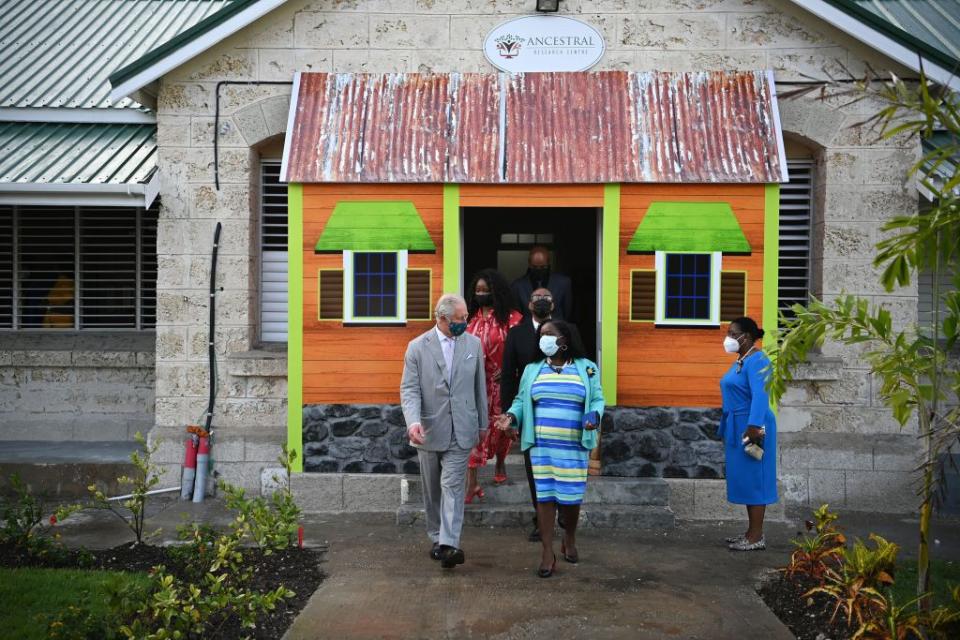
"From the darkest days of our past, and the appalling atrocity of slavery, which forever stains our history, the people of this island forged their path with extraordinary fortitude," Charles said. "Emancipation, self-government and independence were your way-points. Freedom, justice and self-determination have been your guides. Your long journey has brought you to this moment, not as your destination, but as a vantage point from which to survey a new horizon.”
Another way in which Charles has given nods to an awareness for the need for a more modern monarchy is one that is more slimmed down—fewer working royals living on the taxpayer’s dime.
“Over the past few years, that's been something Charles has been spearheading. There are grandchildren and great grandchildren of the queen, who now don't have titles and live as close as [they] can get to normal lives,” says Myko Clelland, British royal expert, genealogist and Director of Content in Europe at the global family history platform, MyHeritage. Clelland worked closely with the Royal Household on the publication of their digitized records. “[A slimmed-down monarchy] is a great thing that shows that the monarchy is still changing.”
It also means more responsibility for Charles’s son and heir, Prince William, who now takes on the title of Prince of Wales. William has long been more popular than his father—he has a comfort and charisma that Charles lacks. In a 2022 YouGov poll, Charles was the seventh most popular royal—the Queen was No. 1, followed by Kate, then William. There was even chatter that maybe Charles would be skipped over and William would be made king—it would never happen because it would require an act of parliament—but it speaks to the enthusiasm for the next generation. And by virtue of Charles’s long wait as heir, the math says it’s likely William will be king for longer than his father.
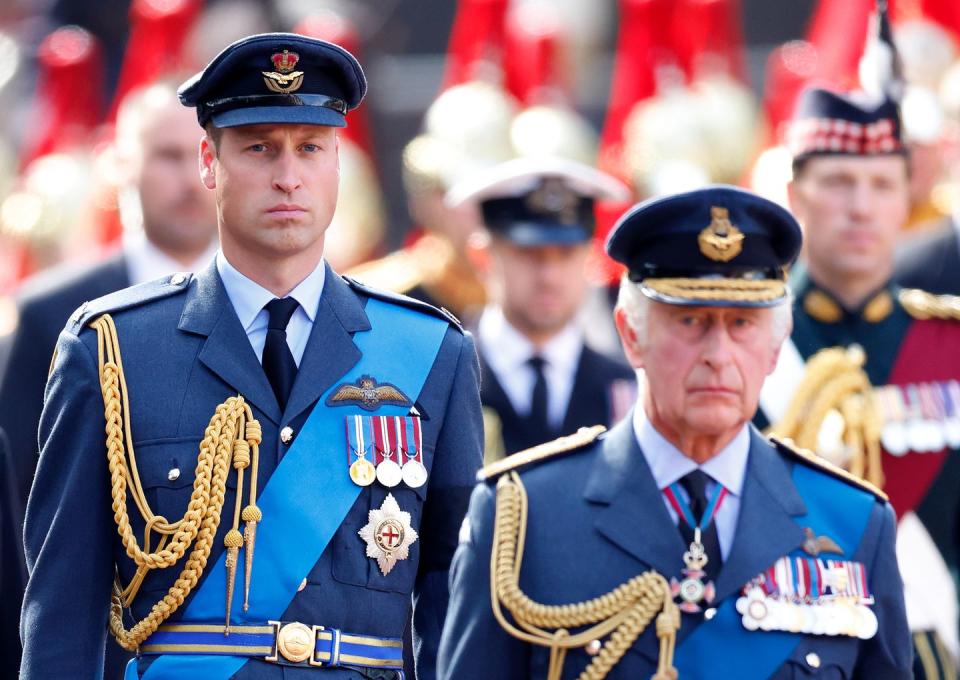
“Realistically, Prince William is going to be king before he's that old … so I think it was always the priority to keep the plates spinning,” says Larcombe. “William and Kate are incredibly popular. They know Charles isn't without his critics—people will stomach him if for no other reason than to honor his mother—but we're not seeing the start of another Elizabethan era. This is a holding circle.”
The wild card, though, is Prince Harry. As he has stepped away from the royal family with his wife, Meghan Markle, the couple has gone public with their mistreatment by “The Firm,” including racism she experienced. And Harry has been candid about Charles’s role as a father.
“My father used to say to me when I was younger … ‘Well, it was like that for me, so it’s going to be like that for you,’” Prince Harry told Oprah Winfrey on their Apple TV+ show, The Me You Can’t See. “That doesn’t make sense—just because you suffered, that doesn’t mean that your kids have to suffer, in fact quite the opposite. If you suffered, do everything you can to make sure that whatever negative experiences that you had, you can make it right for your kids.”
The biggest revelations might still be yet to come. Prince Harry signed a book deal last year with Penguin Random House, and released a statement issued through his publisher describing the book as “a firsthand account of my life that’s accurate and wholly truthful.”
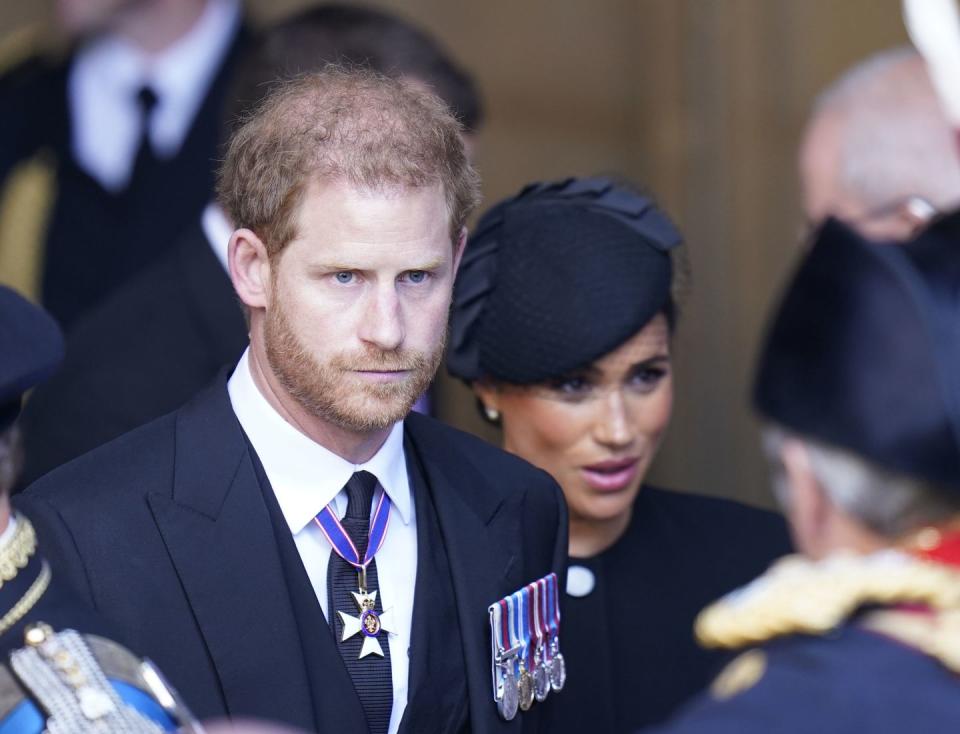
So, while King Charles has weathered public scorn in the past, the timing of Prince Harry’s tell-all could prove lethal. Penguin Random House didn’t respond to a request about the memoir’s publication date but, according to a July 2021 press release it’s expected to publish in “late 2022,” which could land it right in the run-up to his father’s coronation.
“How damning might it be for a son to come out on the eve of his father's coronation,” Larcombe says, “and say, well, he's not a fit dad—and he's not a fit man to be king either?”
You Might Also Like


